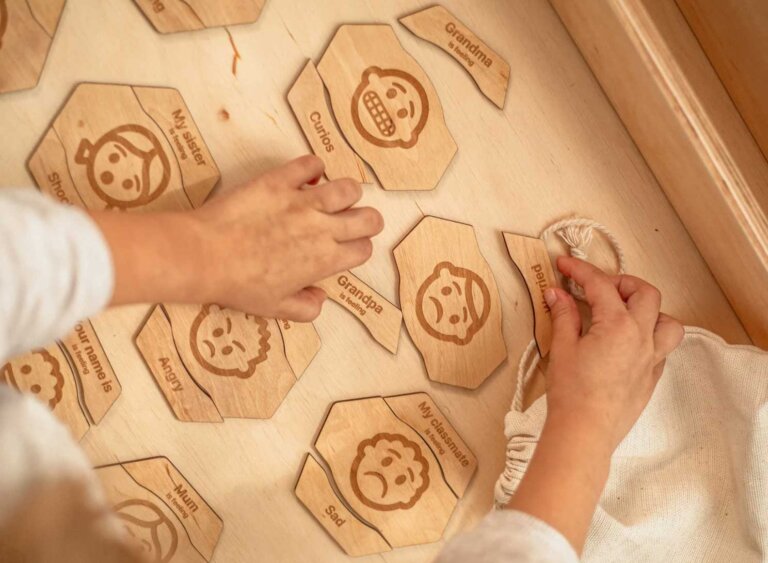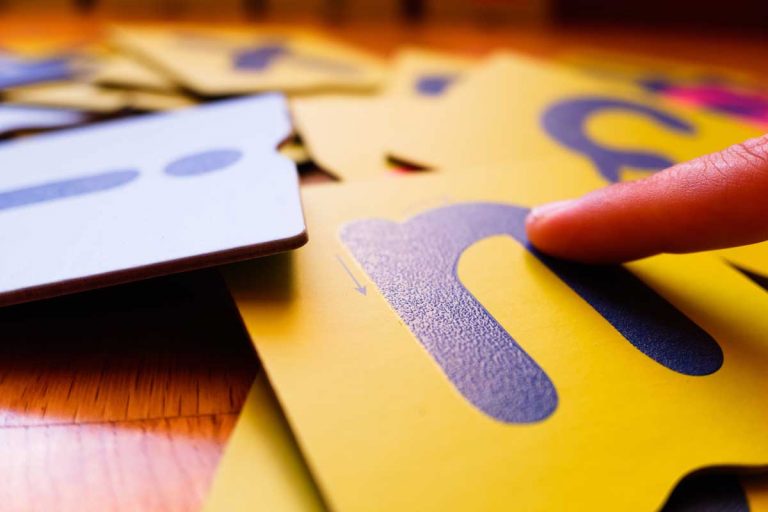Early childhood education is an important decision that lays the foundation for a lifetime of passionate learning. With so many Montessori schools to choose from, it is essential to research high and low before you decide on one.
This article provides an insight into what makes Montessori preschool programs different and helps you decide on how to choose the right Montessori early education provider – daycare or preschool.
How is Montessori Different From Traditional Care or Education?

Montessori preschools differ from traditional preschools in the following ways:
- Unlike traditional schools, Montessori classrooms have children of different ages grouped, such as 0 – 3 years, 3 – 6 years, and 6 – 9 years. The benefit is that the older children watch out and guide the younger students, along with the teachers.
- The hands-on learning activities in a Montessori preschool classroom focus more on activity-based learning that is fun for the children, with the hands-on materials differing considerably from traditional kindergarten.
- The individualization approach of the Montessori method focuses on letting children learn concepts at their own pace and terms.
- Apart from the differing children’s ages, the Montessori students-to-teacher ratio is much lesser than that of a traditional kindergarten (about 25:1).
- With a flexible curriculum and teaching methods in Montessori classes, the emphasis is on cognitive structure and social development. The instructions of the Montessori teacher adapt to each student’s learning style.
Is a Montessori Right For Your Child?
It’s normal for parents to wonder if a Montessori school is suitable for their children. However, all children can excel with the Montessori learning style. If your child is independent, enjoys playing alone, has a long attention span, and can follow directions, she is ready to be in a Montessori preschool.
A child who loves socializing and collaborates with other children of the same age and older ones is Montessori-ready. Young children are still in the developing phase, and Montessori preschool will help them excel. In comparison, Montessori kindergarten works out for all children.
With a dedicated focus on each child and allowing them to learn and explore at their own pace, a Montessori classroom’s prepared environment makes it a fun learning experience for children.
Reasons to Choose Montessori Early Education
Here’s how Montessori education contributes to your child’s growth and success:
- Learning is made fun
- Montessori education fosters independence
- Adheres to the best practices of Montessori philosophy
- Well-resourced learning environments
- Trained, skilled, and passionate staff
- Self-correction and self-assessment lead to confident lifelong learners
- Social development and collaboration
- Holistic learning experience, including life skills and essential curriculum
- Child-led, teacher-guided
Characteristics of a Good Montessori Preschool

An authentic Montessori preschool or day-care has the following characteristics:
Multi-Age Classrooms
Younger children watch and learn from older ones how to participate in classroom learning activities and social interaction. As a result, the older children can develop leadership skills and empathy while guiding the younger ones to learn.
Emphasis on Responsibility and Self-Discipline
A child-led approach, typical of Montessori learning, lets children discover their learning path. They learn to use their time constructively and work within their own framework while understanding the classroom schedule.
When children know they’re responsible for their behavior and success in learning, they regulate their behavior. Self-discipline is rewarded with increased freedom of choice to learn the way they enjoy the most, not with rewards or punishments.
Promotes Independence
In a Montessori preschool, self-directed learning lets children choose and explore the activities most appeal to them at their own pace. They are free to make mistakes and grow from them, giving them a sense of responsibility. This empowers them to grow into independent and creative adults.
Orderly Classroom with Prepared Workstations
Organized and well-prepared workstations are symbolic of Montessori classrooms. Children are free to choose activities and are provided uninterrupted time to finish the activity. They’re also encouraged to keep the materials back in order. It leads to a sense of accomplishment.
An Atmosphere of Mutual Respect
Young children are treated with respect in a Montessori environment, and they, in turn, learn to respect their peers and teachers. They’re made to feel like a part of the community and learn together while supporting each other.
Parents Are Involved in the Learning Process
The involvement of parents is key to a child’s success, as per the Montessori way. Parental involvement encourages them to regularly come to the classroom and participate in various activities with their children.
How to Pick the Right Montessori Early Childhood Provider For Your Child?
Here are some essential things to consider when deciding on the right Montessori program for your child:
- Is authentic Montessori education being provided? Effective and authentic Montessori education involves a school culture devoted to helping each child grow independent. It teaches respect for others, builds confidence, and promotes self-esteem.
- Do they aim for academic excellence? Striving for academic excellence implies helping children achieve their full intellectual potential. Children are made to acquire, adapt, and apply knowledge.
- Extended hours: When both parents work in full-time occupations, a school or daycare program with extended hours is favorable.
- Additional enrichment and foreign language programs: Children readily absorb and retain knowledge much better than adults. Good Montessori programs will offer foreign languages even for young learners.
- Certified teachers: A Montessori educator must be American Montessori Society or Association Montessori Internationale certified. The certification involves 200 – 600 pre-service contact hours, teaching the Montessori philosophy and principles of child development.
If you’re looking for an excellent Montessori early education provider for your little one, try to find a school here.
What to Look For?
An authentic Montessori learning environment involves:
- Learning materials displayed and kept within children’s reach
- Neat and orderly organization
- No workbooks and traditional school papers
- Ample space and well-lit classrooms
- Child-sized furniture grouped into curricular areas
- Few toys
- Children-friendly toileting facilities
- Montessori learning materials, art, charts, and live plants
- Mixed-age group of children
- A life skills or practical area
Final Thoughts
Choosing an early education program is one of the most crucial decisions parents make for their children. Montessori education teaches children life skills, independence, and a lifelong love for learning. Find a good Montessori early education provider and take a tour of the preschool to see why the Montessori philosophy works.







